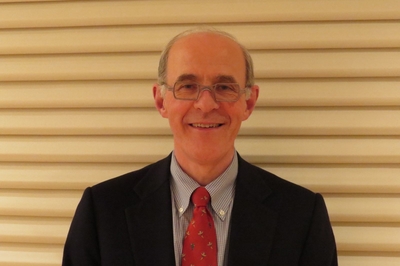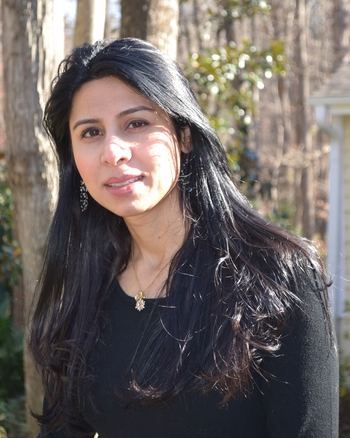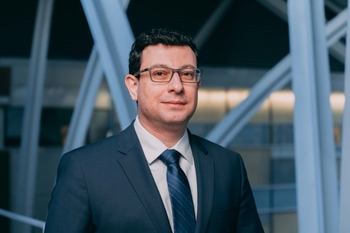New Members Welcomed to Medical-Scientific Advisory Council
The Lupus Foundation of America Medical-Scientific Advisory Council (MSAC) has played a critical role in the fight against lupus for over 40 years. It’s composed of thought leaders from multiple medical specialty areas related to lupus. The Council plays a critical role for the Foundation, advancing the science and medicine of lupus not only through work in research and advocacy, but also by supporting professional and patient education efforts, conducting peer-review of our research funding opportunities, and developing evidence-based research programs that address urgent and unmet needs. It is chaired by leading lupus expert Karen H. Costenbader, MD, MPH.
We are excited to welcome several new members to our MSAC for the 2020-2022 term from diverse backgrounds within the lupus field:
 | Ashira D. Blazer, MD, MSCIAssistant Professor of Medicine |
Dr. Blazer is an Assistant Professor in the New York University School of Medicine Division of Rheumatology. Her interests are in studying the biologic and genetic factors of systemic lupus erythematosus (SLE) severity in patients of African ancestry. Dr. Blazer is also studying the mechanisms supporting genetic phenomenons through novel research on cell function. She has shown that metabolic disturbances in cells render vulnerability to long-term inflammatory stress. She has shown that metabolic disturbances in both endothelial and inflammatory cells render the candidate tissues vulnerable to chronic inflammatory stress. Through her studies, Dr. Blazer aims to provide personalized treatment options to the most vulnerable of patients.
 | Cassandra Dolecki, Pharm.D., BCACP, TTSClinical Pharmacy Specialist, Autoimmunity Institute |
Cassandra Dolecki is a Clinical Pharmacy Specialist at the Autoimmunity Institute, part of Allegheny Health Network in Pittsburgh, PA. She graduated from the Lake Erie College of Osteopathic Medicine (LECOM) School of Pharmacy in 2012, and completed two years of pharmacy residency training at Allegheny General Hospital in Pittsburgh, PA. After completion of training, she spent five years as an assistant professor at the University of Charleston School of Pharmacy in Charleston, WV.
 | John G Hanly, MD, MRCPI, FRCP(C)Professor of Medicine and Pathology at Dalhousie University |
Dr. John Hanly is Professor of Medicine and Pathology at Dalhousie University and Attending staff physician at the Queen Elizabeth II Health Sciences Center, Halifax, Nova Scotia, Canada. He is the Director of the Dalhousie University Lupus Clinic in Halifax. Dr. Hanly is a member of national and international research networks involved in clinical studies of systemic lupus erythematosus. He has published extensively and has received awards in recognition of his achievements in clinical research in lupus. Dr. Hanly’s major research focus is the study of the mechanisms that cause disease and clinical outcomes in systemic lupus erythematosus, with a particular emphasis on ways in which lupus may affect the brain and other parts of the nervous system.
 | Judith James, MD, PhDVice President of Clinical Affairs, Chair of Arthritis and Clinical Immunology Program and Lou Kerr Chair in Biomedical Research |
As Vice President of Clinical Affairs and Chair of Arthritis and Clinical Immunology, Dr. James leads the largest research program at Oklahoma Medical Research Foundation. She is also the Associate Vice Provost for Clinical and Translational Science and a Professor of Medicine at the University of Oklahoma Health Sciences Center. In these roles, her mission is to build a continuum connecting the physical processes and studies, clinical research, industry collaborations, and clinical care. Dr. James and her research group focus on understanding the causes and mechanisms of autoimmune disease onset, the evolution of autoantibodies, and the interplay of genes and environment in systemic autoimmunity. Judith has made seminal contributions in these areas, and she has published more than 280 manuscripts. Her achievements have been recognized with prestigious awards including the Presidential Early Career Award for Scientists/Engineers, ACR Dubois’ Award and the Evelyn M. Hess Award from the Lupus Foundation of America. Judith serves as the principal investigator for numerous NIH grants and as a Council member for the National Institute of Arthritis, Musculoskeletal and Skin Disease.
 | Timothy Niewold, MDJudith and Stewart Colton Professor of Medicine and Pathology |
Dr. Timothy Niewold, who is rejoining the LFA’s Medical-Scientific Advisory Council, is a physician-scientist working as a human geneticist and translational researcher, bridging the traditional gap between the basic and clinical sciences. Dr. Niewold’s work focuses on identifying and understanding the factors causing disease in human autoimmune disease, and the ways in which underlying genetic risk factors impact immune responses to result in disease. His lab is recognized for important contributions to the genetic basis of systemic lupus erythematosus (SLE) and the role of type I interferon in the pathogenesis of this disease. Dr. Niewold is also the Director of the Colton Center for Autoimmunity at NYU, a translational research center dedicated to identifying causal factors and new treatment targets in autoimmune disease. Work in the Colton Center spans a large number of autoimmune diseases and pathways, and their regular meetings bring together a robust group of multidisciplinary translational scientists who interact across the traditional silos of the academic medical center.
 | Saira Z Sheikh, MDAssistant Professor of Medicine, Rheumatology, Allergy & Immunology, UNC Chapel Hill |
Dr. Saira Sheikh is board certified in Internal Medicine, Rheumatology and Allergy/Immunology. She is Director of the UNC Rheumatology Lupus Clinic and Director of the Clinical Trials Program at the UNC Thurston Arthritis Research Center. Dr. Sheikh’s work involves answering scientific questions that directly impact the care of patients with complex immunologic diseases, mainly lupus. She is Principal Investigator on numerous clinical trials involving new therapeutics in lupus, as well as Principal Investigator on translational projects focused on understanding the development of biomarkers in autoimmune disease. Her projects apply an integrated approach of research, teaching, and clinical practice to advance team science through clinical trials, basic and translational research collaborations and community-based studies. She is working on a national level to develop programs to address racial disparities in lupus clinical trials. Dr. Sheikh is also actively involved in the education of patients, medical students, residents and sub-specialty fellows.
 | Dr. Zahi Touma, MD, PhDAssistant Professor of Medicine, University of Toronto |
Dr. Zahi Touma is an Assistant Professor of Medicine at the University of Toronto, Clinician-Scientist and Staff Rheumatologist with the University Health Network/Mount Sinai Hospital and adjunct scientist with the Institute for Work and Health. He holds cross-appointments with the Institute of Health Policy Management and Evaluation (IHPME) and Institute of Medical Sciences graduate program, and is also a Clinician-Scientist with the Krembil Research Institute. Dr. Touma’s research is focused on patients with systemic lupus erythematosus (SLE) and measurement science with a particular interest in the assessment of disease activity, patient reported outcomes and cognitive function. One of his most significant contributions has been the development of the SLE disease activity indices – the SLEDAI Responder Index-50 (S2K RI-50) and SLEDAI-2K Glucocorticoids Index (SGI). He has published 89 peer reviewed original research papers and the majority are focused on the assessment and management of SLE. Another major focus of his research is the assessment of cognitive impairment in patients with SLE. Dr. Touma has established the NeuroLupus Program which consists of a team of experts in psychometrics, neuropsychology, neurology, psychiatry, measurement and bioinformatics with the goal of developing improved methods of identifying cognitive impairment in SLE, understanding its course over time, and impact on quality of life and productivity.



